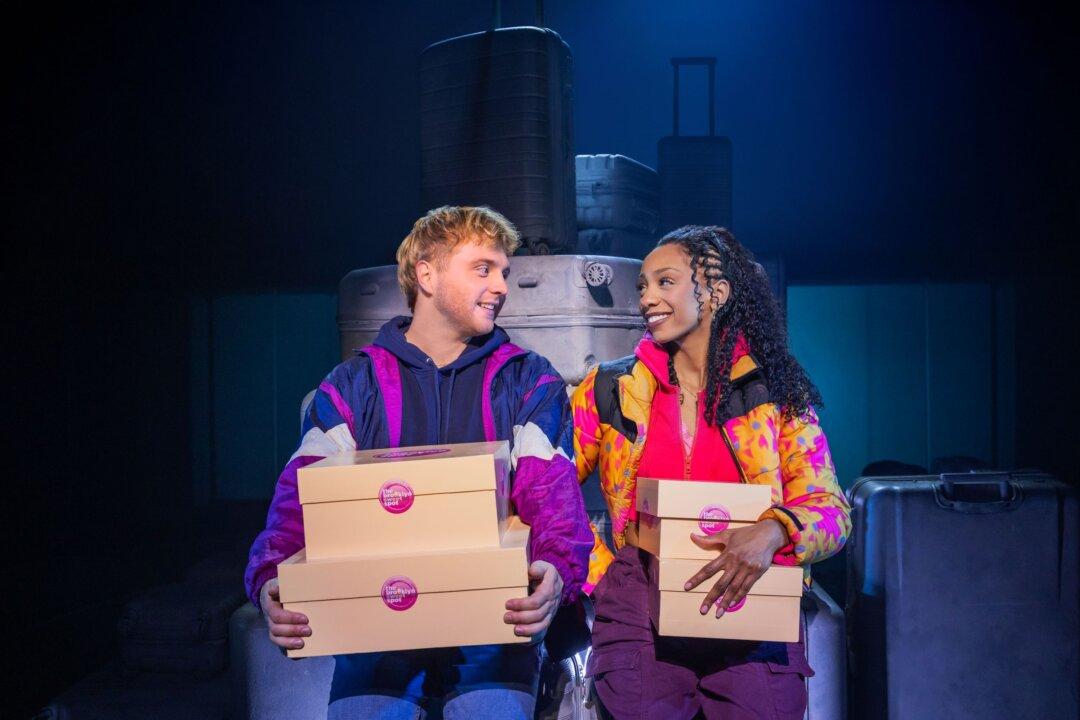NEW YORK—Who knew that having two people sit side by side and reading aloud could be so involving? That’s certainly the case in the absolutely brilliant production of A.R. Gurney’s Love Letters at the Brooks Atkinson Theatre on Broadway.
The show looks at the lives of Andrew Makepeace Ladd III and Melissa Gardner as seen via the letters these two childhood friends write to each other over a period of 50 years. Brian Dennehy and Mia Farrow initially take on these roles and are replaced throughout the run by other actors of equal caliber.
It’s through these various letters, a practice that begins when they’re in the second grade together, that fully formed pictures of the two emerge. Though neither is hurting financially, Melissa’s family is clearly well off. She takes trips and travels the world studying art.
Andrew, on the other hand, takes summer jobs and joins the military.
Both also have family issues. Melissa suffers through her parents’ divorce and her mother’s multiple remarriages; these events eventually color her own experiences in that area.
Andrew, though, has a loving and supportive family, except perhaps when he decides to do what feels right for himself, rather than what they expect of him—such as when he becomes involved with a woman who may not be up to the “proper” standards.
Through all their respective ups and downs, the one constant Melissa and Andrew have is each other. The two often tease, cajole, and give voice to their feelings through these written messages.
Some really enjoyable moments occur during their teenage years when Melissa or Andrew report rumors concerning the other, rumors that are quickly debunked with caustic comments.
Another good effect are the occasional periods of silence when one is angry at the other or simply does not want to speak about a certain subject. The person writing at the moment shows more and more desperation as the silence continues on the other side.
It’s also a little ironic when Melissa keeps saying how much she hates writing letters. Yet, as Andrew notes, with letters, one can savor and reread passages, thoughts, and the incidents described. When one converses by phone instead, Melissa’s preferred method of communication, one feels that once you’ve hung up, it’s over.
Two elements can be seen throughout—nostalgia and wistfulness. When Love Letters first debuted in 1988, letter writing was already becoming a lost art and is even more so now in this age of email, tweeting, and other forms of electronic media. The play thus allows the audience to look back at a time when one often had to rely on much slower methods to learn the latest news.
The other feeling present can best be described as that of ships passing in the night. Both Melissa and Andrew would seem perfect candidates for a relationship together, and the audience certainly roots for things to go in that direction, yet neither ever seems to be at the right place at the right time. However, the connection they feel for each other is always there, even as they keep growing and changing.
Farrow and Dennehy do a great job with their characters—Farrow in terms of what she says and how she says it, Dennehy more in terms of pregnant pauses and what he doesn’t say. The two take Gurney’s text and make Andrew and Melissa leap off the page and straight into the audience’s imaginations and hearts.
Farrow, absent from the Broadway stage for more than three decades, makes a very welcome return here. She takes her character from a somewhat spoiled little rich girl trying to find her place in the world to someone in the dregs of despair. Moments that really hit home are when she reconnects with Andrew later in life.
Dennehy is fine as always, nicely portraying Andrew as an earnest and mostly level-headed fellow who finds himself perennially caught between what he wants for himself and other people’s expectations. This conundrum becomes especially apparent when he’s in the middle of a political campaign.
Director Gregory Mosher also does a great job, helping Farrow and Dennehy bring Gurney’s words to life with no special staging whatsoever. He also paces the story perfectly, making it involving without coming across as rushed or lackadaisical.
A wonderfully intimate tale begun in a most simplistic setting, Love Letters takes the audience on a journey through two people’s lives and makes for a wonderful theatrical experience.
Love Letters
Brooks Atkinson Theatre
256 West 47th Street
Tickets: 877-250-2929 or ticketmaster.com
Running Time: 1 hour, 35 minutes
Open Run
Judd Hollander is the New York correspondent for the London publication The Stage.





